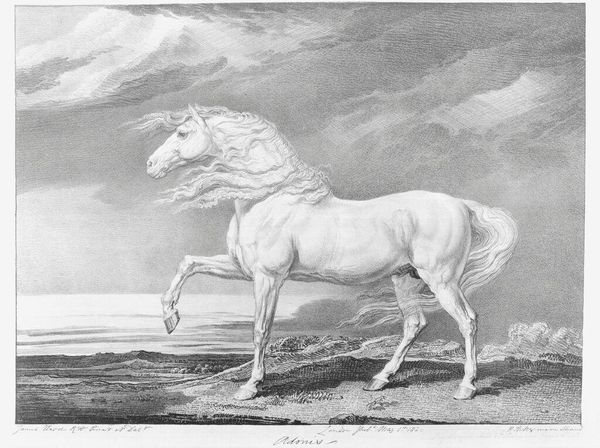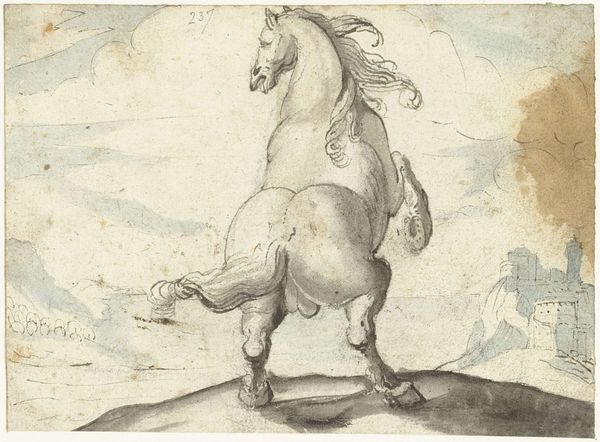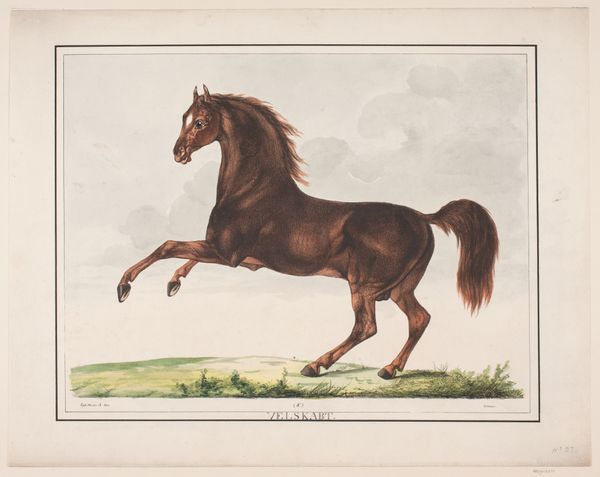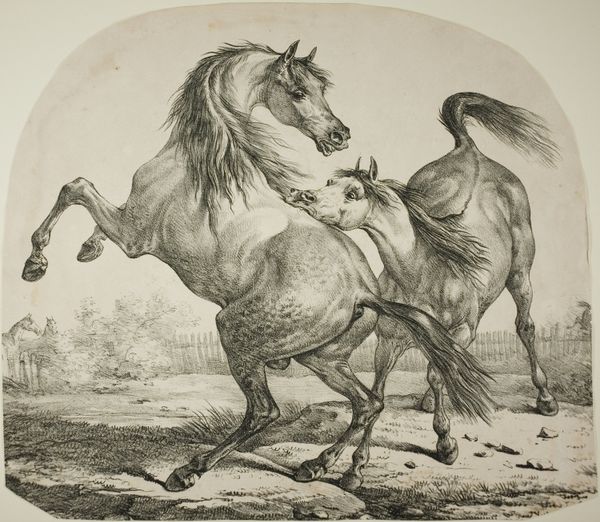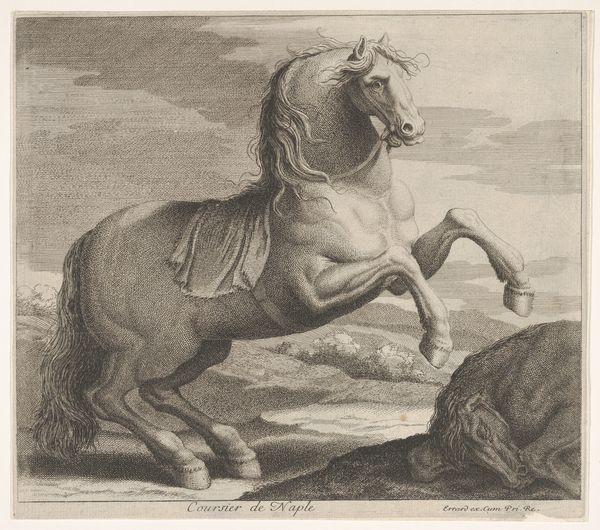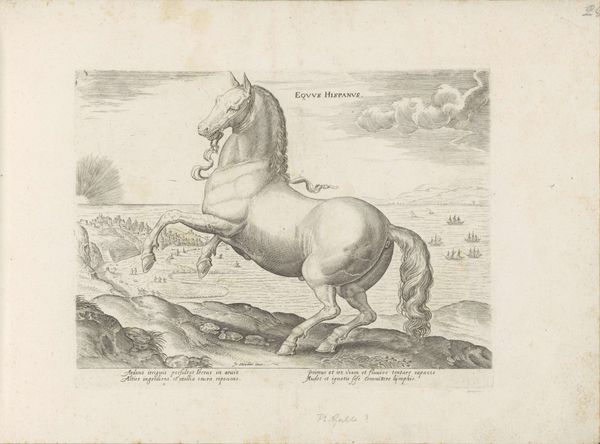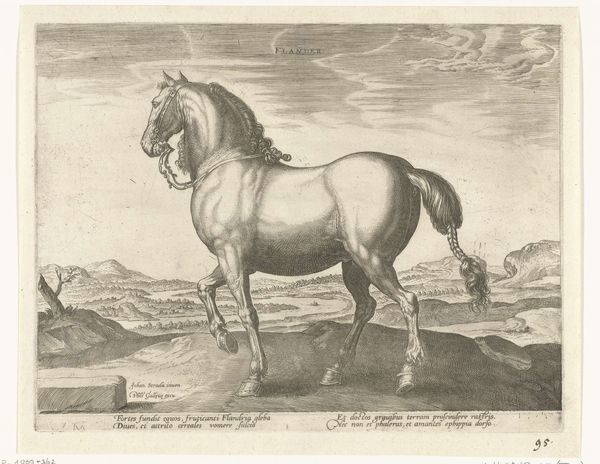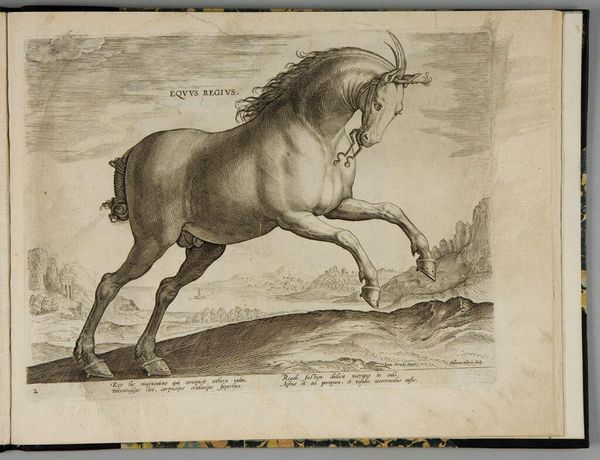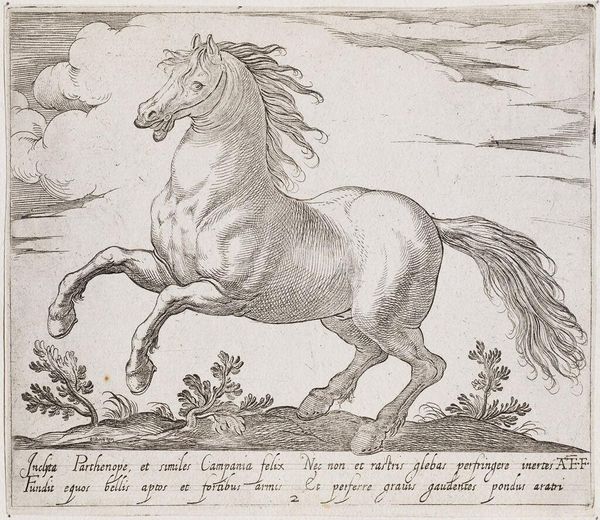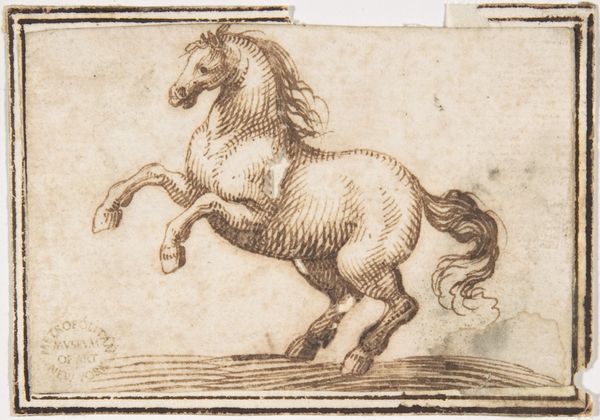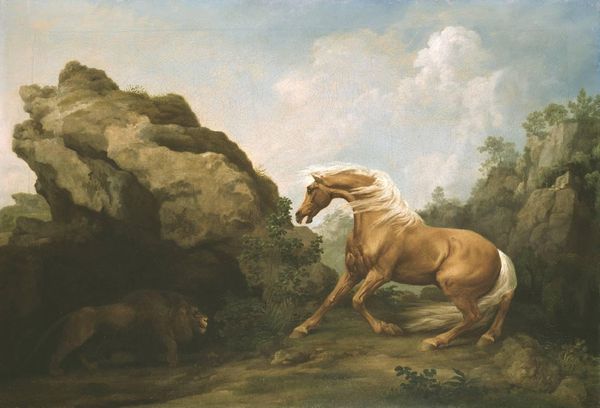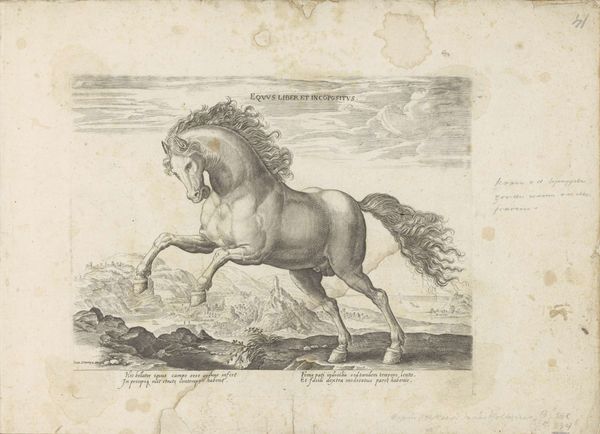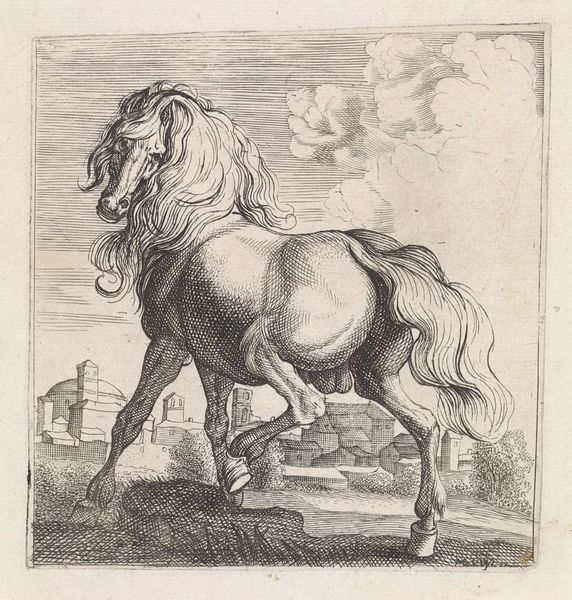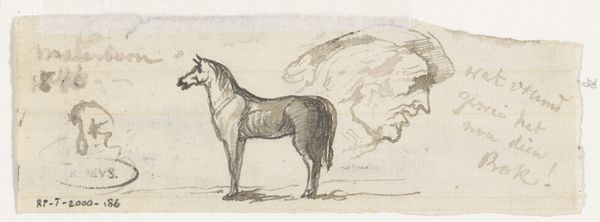
watercolor
#
portrait
#
landscape
#
caricature
#
figuration
#
11_renaissance
#
watercolor
#
horse
#
surrealism
#
watercolour illustration
Dimensions: height 79 mm, width 104 mm
Copyright: Rijks Museum: Open Domain
Joris Hoefnagel made this watercolor and gouache painting of a white horse in the late 16th century. Hoefnagel’s horse transcends mere representation, embodying ideas of power, grace, and nobility within the cultural context of its time. The image operates through a series of visual and historical codes. Horses, particularly white ones, were potent symbols of status and authority in 16th-century Europe. They were associated with royalty and military prowess. Hoefnagel, working in the Habsburg court, would have understood this imagery well. His detailed rendering of the horse elevates it to an emblem of aristocratic power, reflecting the social hierarchies of the period. To fully appreciate this image, we need to research the complex social and institutional structures of the Habsburg court. By studying courtly life, equestrian culture, and the history of the artist himself, we can begin to understand how art served to uphold prevailing social norms.
Comments
No comments
Be the first to comment and join the conversation on the ultimate creative platform.
